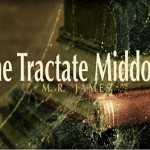 I’m going to get my obvious, cheap joke about this week’s Doctor Who out of the way, and then we can move on to the usual serious academic criticism: had writer Tom McRae and director Nick Hurran been playing a lot of Portal 2 while they were crafting The Girl Who Waited?
I’m going to get my obvious, cheap joke about this week’s Doctor Who out of the way, and then we can move on to the usual serious academic criticism: had writer Tom McRae and director Nick Hurran been playing a lot of Portal 2 while they were crafting The Girl Who Waited?
Because between the bland facility, menacing female voice and kill-with-kindness ethos, that was the first thing I thought of. Anyway, that aside, was it actually any good?
Cheap White Robots
There was certainly a risk it could’ve gone wrong. By setting the entire episode in such a blank location, and spending the entire time mulling over one dilemma, it would’ve been all too easy for it to drop off the cliff into tedium if the script or the actors had failed to keep the momentum going.
Happily, and to their credit, I was engaged throughout. To be honest, the main appeal of current Doctor Who is often the charm of the three leads, keeping us engaged even when faced with a humdrum plot, so a whole 45 minutes of them isn’t unwelcome.
It might also keep costs down a bit, although I imagine the double-Gillan effects, aging make-up and CGI glowy things compensate for the lack of actors.
Cry Me A River Song
Making a comeback in this episode was heavy-handed tear-jerking, practically a regular cast member during the David Tennant years but downgraded since Steven Moffat and Matt Smith arrived. That was no bad thing, the show used to hit that button a bit too much and risk looking mawkish, and when they do decide to go there again, I’m caught off guard and easy prey.
Not to mention, our hero gets one of his most morally dubious moments in a while. Of course, we were warned that “the Doctor lies” in Let’s Kill Hitler, but it’s still jarring when we get the sharp end of the ambiguous stick. And kudos to Tom McRae for not taking the easy way out on the ending, I was expecting Older Amy to helpfully die in battle, thus swerving the whole dilemma.
Bye Bye Baby
Criticisms? Well, as per last week, Missing Melody is not mentioned, it looks like we’re ignoring her until the finale. I’ve enjoyed the last few episodes sufficiently to give them a pass on that, but they might want to make their next arc plot less imperative; it does create a strange disconnect. And, yes, this episode might be a bit slow and ponderous for the audience of children this show is allegedly aimed at.
Still, I’m not going to let them ruin my fun. This was another good episode, I thought: clever, touching and nice to see Rory get a chance to play hero for once. As ever, Arthur Darvill does great things when the script lets him. More like this, please. Watch it again on iPlayer if you like; god knows I’m going to.
More Doctor Who on Dork Adore | Doctor Who: A Good Man Goes To War – Dork Review


 Doctor Who: Vampires Of Venice review
Doctor Who: Vampires Of Venice review Doctor Who Adventure Games: City Of The Daleks review
Doctor Who Adventure Games: City Of The Daleks review Doctor Who and Sherlock news a-go-go from Edinburgh
Doctor Who and Sherlock news a-go-go from Edinburgh Your Guide to the Holiday Television Schedule
Your Guide to the Holiday Television Schedule RSS
RSS
I think the question of “right” is essential to looking at the episode. I’m grateful that the episode didn’t make light of the consequences of the decision, but I do believe the Doctor went too far, which could potentially be fantastic for the narrative.
A few too many thoughts on last night’s Doctor Who: http://theoncominghope.blogspot.com/2011/09/doctor-who-on-forgotten-wives-and.html
I guess time has to be a factor, but they did rather shy away from having Rory and Amy confront the Doctor at the end. Whether it will be addressed next week or not, I don’t know, I suspect it probably won’t be. But if there is an accounting in the finale of whether the Doctor is a force for good or not (and that is one of Moffat’s pet themes, based on past form), you’d hope it’ll come up.
I guess time has to be a factor, but they did rather shy away from having Rory and Amy confront the Doctor at the end. Whether it will be addressed next week or not, I don’t know, I suspect it probably won’t be. But if there is an accounting in the finale of whether the Doctor is a force for good or not (and that is one of Moffat’s pet themes, based on past form), you’d hope it’ll come up.
I guess time has to be a factor, but they did rather shy away from having Rory and Amy confront the Doctor at the end. Whether it will be addressed next week or not, I don’t know, I suspect it probably won’t be. But if there is an accounting in the finale of whether the Doctor is a force for good or not (and that is one of Moffat’s pet themes, based on past form), you’d hope it’ll come up.